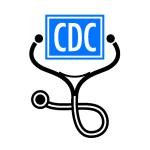
During a recent journey along the east coast, in the USA, a few of the Foundation members had the opportunity to visit an array of public restrooms along the way.
As we are aware, public restrooms can be a challenge and a real eye-opening experience. Many of the facilities fell short in monitoring their supplies along with the monitoring of over-all cleanliness of their restroom.
During the road trip, along various interstates, back roads, and local towns, we began to assess the establishment’s public facilities based on the following criteria:
* Cleanliness.
* Supplies offered.
* Electronic hand drying devices vs traditional supplies.
* Cleaning/Room monitoring log.
As the journey continued the restroom grading system became the topic of conversation discussing the vast ways establishments can maintain a safe, clean, and friendly environment for their visitors. There were also discussions on how a traveler can be prepared by carrying supplies to ensure their own safety when utilizing public facilities.
The following is a list of a few supplies easily kept in a small bag during travel times:
* A small container of liquid soap (preferably one without the anti-bacterial ingredients).
* A few paper towels dampened with bleach or pack a EPA Registered cleaning product to clean the commode and high-touch areas. It is good safety practice to store the paper towels in a sealed plastic container. Other cleaning (Germicidal/Disinfectant) product wipes should remain in their original container or sealed separately in a plastic container. Never mix two cleaning wipes/products together or store in the same container.
* Sheets of T.P. or a small roll.
* Sheets of dry paper towels to turn off water faucets and dry hands.
* Attempt to open the restroom door with an elbow or use a dry paper towel to pull the door handle open in order to keep hands clean and not re-introduce germs onto the hands.
Was there a favorite rest stop/establishment along the way? Yes.
McDonalds restrooms were found to be acceptable and met the needs of the travelers. Their establishments focus on cleanliness, offered an adequate supply of soap with automated towel dispenser or hand dryers, and facility monitoring logs in place. Their organization also displayed signs over the sinks promoting hand hygiene, a public safety announcement for both staff, and visitors.
The public restrooms at rest-stops along I-95 were impressive with their focus on cleanliness, adequately filled soap containers, and hand dryers available in each restroom with the elimination of a main door to enter/exit the facility. Once the hands are washed/dried the reintroduction to harmful germs upon exiting the public area from a door handle is eliminated.
There were a number of unacceptable facilities located in local discount stores, some food stores, food chain eateries, and quick-mart stations. Their sinks were not automated with motion sensors and many with two handles, empty paper towel dispensers and automatic hand drying equipment unavailable. Many restrooms were without cleaning monitoring logs promoting safety and cleanliness to the staff (food handlers), and visitors alike.
We appreciate the availability and use of public restrooms during long commutes, when on vacations, and time away from home. Most establishments offer adequate supplies to eliminate, and prevent the spread of harmful germs, however; it is always best to be prepared. The next time a journey is planned, do not forget to pack the supplies needed for a public restroom visit that will keep you and your family safe.
The journey and hand-washing experiences become part of the adventure. Take the opportunity to report negative experiences to the management and help change a negative into a positive for the next person visiting.
Remember to take that twenty second hand-washing break before exiting a restroom, before/after eating, before/after entering a patient’s room, after changing diapers, before/after handling food, and during the day. Let’s stop giving germs a free ride.
Here’s to everyone’s good health!
Below you will find links available for Public Restroom locators offered by Charmin, one app for an iPhone, and an app for an Android Phone.
http://www.charmin.com/find-public-restrooms.aspx?utm_source=msn&utm_medium=cpc&utm_campaign=Charmin_Search_Desktop_Lifestyle_SoS+App&utm_term=restroom%20app&utm_content=SvExifYv_restroom%20app_p_2095916800&sctp=ppc&scvn=bing&scsrc=bing_search&sckw=na
* App For iPhone
https://itunes.apple.com/us/app/restroom-bathroom-toilet-finder/id311896604?mt=8
* App For Android
https://play.google.com/store/apps/details?id=com.bto.toilet


